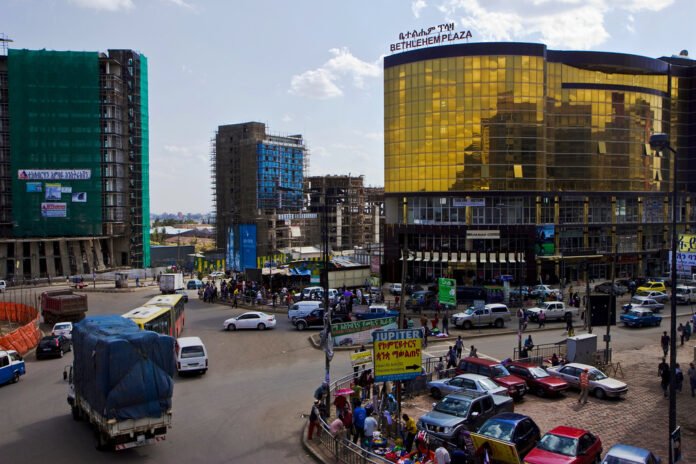South Sudan, a young nation with a tumultuous history, faces immense challenges in nearly every sector. One of the most pressing and often overlooked challenges is its healthcare system, which remains underdeveloped due to decades of conflict and the ongoing shortage of resources. The healthcare infrastructure, particularly for specialized treatments like cancer care, is almost nonexistent. The country does not have dedicated cancer hospitals, and the facilities that do exist offer only limited support for cancer patients.
In this blog, we will explore the current state of healthcare in South Sudan, particularly in relation to cancer care, and discuss how the situation might improve, as well as the steps patients currently take to receive necessary treatment.
Healthcare Facilities in South Sudan: A Snapshot
South Sudan’s healthcare system is constrained by numerous factors, including poor infrastructure, a lack of trained medical professionals, and limited financial resources. Amidst this, the few hospitals and medical centers that do exist provide essential services, but specialized care, especially for cancer, is largely unavailable. Let’s take a closer look at some of the notable medical facilities in the country.
1. Juba Teaching Hospital: A Central Hub
Located in the capital, Juba Teaching Hospital is one of the largest and most prominent healthcare institutions in South Sudan. It offers a range of general medical services, from emergency care to routine medical treatments. However, while the hospital is a vital resource for the population, it does not have specialized oncology departments or comprehensive cancer treatment capabilities.
View this post on Instagram
For most South Sudanese, Juba Teaching Hospital is the first point of contact for medical care. But for those facing life-threatening conditions like cancer, it represents only a starting point. The lack of specialized cancer services means that patients often leave with little more than a diagnosis, leaving them to face the uncertainty of how to proceed next.
2. Wau Teaching Hospital: Limited Services
Wau Teaching Hospital, located in the western part of the country, provides essential healthcare services, much like its counterpart in Juba. It offers basic diagnostic and treatment services, but it too is unable to cater to the specific needs of cancer patients. For patients in Wau, the situation is much the same as in Juba—basic care is available, but specialized oncology treatments like chemotherapy or radiotherapy are out of reach.
View this post on Instagram
Given the country’s fragile healthcare infrastructure, this lack of comprehensive cancer care at facilities such as Wau and Juba forces patients to travel long distances, often to neighboring countries, in search of more advanced treatments. This, in turn, imposes a financial and emotional burden on families already struggling with the stresses of living in a conflict zone.
3. Malakal Teaching Hospital: General Healthcare, No Oncology
Further north, Malakal Teaching Hospital provides general healthcare services, but again, there are no specialized oncology services. This pattern repeats across most medical institutions in South Sudan: hospitals offer broad healthcare solutions but lack the specialized departments necessary for diagnosing and treating cancer at advanced stages.
View this post on Instagram
In a country already grappling with limited healthcare resources, the absence of cancer treatment centers is especially problematic. Cancer is often diagnosed late, making treatment more difficult and less effective. Without proper medical facilities, patients are left with minimal options—either they live with the disease, often in increasing pain, or they seek out healthcare abroad, if financially possible.
What About Other Hospitals?
There are a few other general hospitals and clinics across South Sudan, but none of them are specifically focused on cancer care. In many cases, patients are able to access basic diagnostic tools, such as imaging and pathology services, but advanced treatments are not available locally. This lack of comprehensive care means that, for many, the hope of surviving cancer depends on the ability to travel outside the country for specialized treatments.
While some international medical organizations and NGOs offer limited support, particularly in the form of outreach programs or mobile clinics, these initiatives are sporadic and cannot replace the need for a dedicated, sustainable cancer treatment infrastructure.
The Cost of Cancer Care: Seeking Treatment Abroad
As of now, the reality for most South Sudanese cancer patients is harsh. They must rely on medical care abroad, which can be prohibitively expensive. Countries like Kenya, Uganda, and Sudan are common destinations for those seeking cancer treatment. But even then, there are significant barriers: not only the cost of treatment but also travel expenses, visas, and accommodation costs. For families already living in poverty, these financial burdens are often insurmountable.
In addition, the lack of coordinated healthcare infrastructure means that patients often arrive in neighboring countries without the detailed medical history or necessary documents for proper treatment. They face long waiting times and uncertainty regarding their care.
International partnerships, such as those between South Sudan and global health organizations, have attempted to fill the gap. However, these efforts are often short-term, and the lack of a sustainable, long-term strategy for cancer care leaves patients vulnerable.
The Road Ahead: What Needs to Change
South Sudan’s healthcare system desperately needs investment and reform, particularly in cancer care. In the long run, the country needs dedicated cancer hospitals that can provide a full range of services, from diagnosis to advanced treatment options like chemotherapy, radiotherapy, and surgical oncology. But there are significant challenges to achieving this goal.
First, there needs to be a focus on improving the overall healthcare infrastructure, which is currently fragmented and underfunded. This includes increasing the number of trained healthcare workers, building more hospitals, and ensuring that essential medical equipment is available.
Secondly, international partnerships and donations can help bridge the gap in the short term. NGOs and organizations such as the World Health Organization (WHO) can play a crucial role in bringing expertise, funding, and resources to help develop specialized cancer treatment services. However, these initiatives need to be coordinated and sustainable, with a focus on capacity-building within South Sudan itself.
Lastly, awareness of cancer prevention and early detection needs to be a priority. In many African nations, cancer is still a highly stigmatized disease, and many people wait until the disease is in its advanced stages before seeking help. Educating the population about cancer risks, symptoms, and the importance of early detection can help reduce the burden on the healthcare system and improve survival rates.
Conclusion
In conclusion, cancer care in South Sudan is in dire need of attention. While some healthcare facilities exist, none are specialized for cancer treatment, and patients are left with limited options. With a fragmented healthcare system and insufficient resources, the country faces an uphill battle in providing its citizens with the specialized care they need. However, through targeted investments, international partnerships, and a long-term strategy for healthcare reform, there is hope that South Sudan can improve its cancer care services in the future. For now, patients continue to seek care abroad, bearing the financial and emotional cost of a healthcare system that is yet to fully emerge from years of conflict.
The road ahead is long, but with collective efforts, change is possible.


